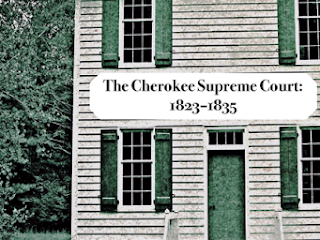Bethany Berger (University of Connecticut School of Law) has posted "McGirt v. Oklahoma and the Past, Present, and Future of Reservation Boundaries," to be published in the University of Pennsylvania Law Review Online. Here's the abstract:
“Unlawful acts, performed long enough and with sufficient vigor, are never enough to amend the law.” So reads McGirt v. Oklahoma, the most important reservation boundary case in the history of the Supreme Court. But the reality is that until McGirt, courts often rewarded unlawful acts with reservation diminishment. This Article first places McGirt in the context of the Muscogee (Creek) Nation’s century long fight to restore sovereign rights illegally denied after allotment, and the even longer fight by the Muscogee Nation and others to survive a trail of broken treaty promises. It then corrects the false assumptions about the past and present of reservation boundaries that led the Court to turn lawbreaking into law.
As to the past, I show that the allotment-era Congress knew that reservations did not depend on land tenure, and that its statutes distinguished between allotment acts that diminished reservations and those that did not. States, however, regularly broke the law, asserting jurisdiction in violation of federal Indian law rules. Before McGirt, however, the Court falsely assumed that “[t]he notion that reservation status of Indian lands might not be coextensive with tribal ownership was unfamiliar at the turn of the century,” and so justified relying on state violations of tribal sovereignty as “evidence” of congressional intent.
As to the present, I show that reservation status is not disruptive for non-Indian communities, and often benefits tribal and non-tribal citizens alike. In high-profile cases in Tacoma, Washington and Pender, Oklahoma, life in those communities began to improve at the same time reservation boundaries were affirmed. Throughout the country tribal governments contribute to the economies and social welfare of their surrounding communities. The Muscogee Nation, whose sophisticated law enforcement, health care, governance, and economic development arms already partner with non-tribal governments throughout its territory, exemplifies the benefits that strengthening tribal self-governance can provide.
The full article is available here.
-- Karen Tani


